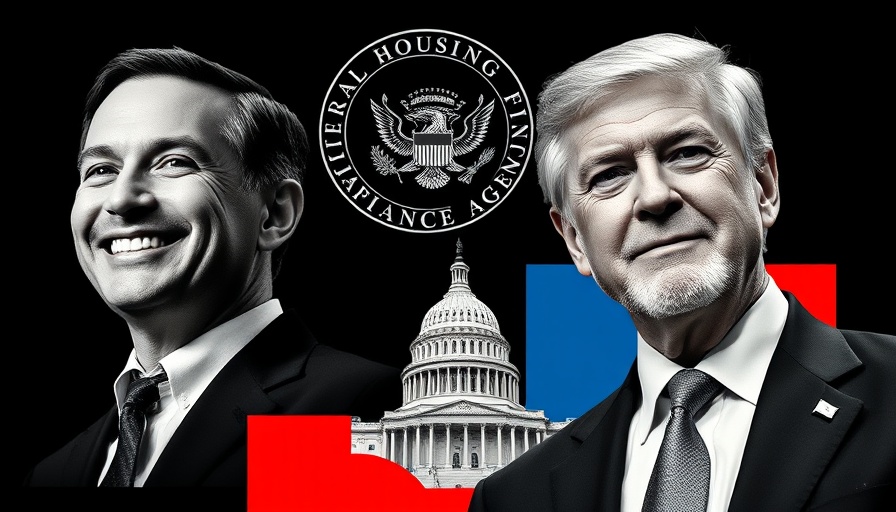
Bill Pulte’s Vision: A New Era for Fannie Mae and Freddie Mac
In a bold step towards reform, newly confirmed FHFA Director Bill Pulte has set his sights on revamping government-sponsored enterprises (GSEs) Fannie Mae and Freddie Mac. His ambition to pull these entities out of conservatorship is not just a policy change but a significant shift intended to reshape the underlying framework of the U.S. housing market. In an increasingly challenging real estate environment, Pulte's leadership sheds light on expectations surrounding housing finance and accessibility for millions of Americans.
The Drive for Privatization
Pulte’s confirmation has reignited discussions about the privatization of Fannie Mae and Freddie Mac—operations that have been under federal control since the 2008 financial crisis. Originally instituted as a safety net after a massive taxpayer bailout, the conservatorship has stretched on for over 15 years. With this prominent political appointment, experts believe that the Trump administration aims to expedite the move towards privatization. However, the discussion comes with caveats; higher credit spreads in securities without government backing could lead to significantly increased mortgage rates, potentially pricing out first-time and low-income homebuyers.
Connecting to the Greater Housing Ecosystem
With a background in real estate and homebuilding—his family’s empire rooted in developing residential properties—Pulte's appointment appeals to stakeholders within the housing sector. Analysts note that leveraging his expertise could signal beneficial changes for developers seeking easier financing options. However, whether this creates a more affordable housing market is yet to be determined. As mortgage rates fluctuate, community leaders and homeowners alike must remain vigilant about how these shifts impact affordability.
Insights from Industry Leaders
The Mortgage Bankers Association (MBA) echoes sentiments about a cautious exit from conservatorship, promoting a framework that prioritizes safety and soundness to prevent undue pressure on mortgage rates. During a recent conference, industry leaders emphasized principles that should guide the GSEs' release, including ensuring the housing finance landscape remains stable and accessible. The confluence of beliefs from diverse stakeholders points to the complex dynamics at play in these reforms, as the administration faces scrutiny over the implications of privatization.
Public Sentiment and Future Outlook
Public attention on the housing market is heightened. With Pulte’s approach embracing traditional values and national interest, many see a possible resurgence in homeownership prospects—ideals underpinning the notion of the American Dream. Yet, as the dialogue unfolds, the need to balance historic challenges with equitable opportunities remains crucial. The dual narrative of empowering private enterprise while safeguarding consumer rights is one that will define the milestones of Pulte’s leadership at the FHFA.
A Call for Community Engagement
The future of Fannie Mae and Freddie Mac under Pulte’s direction will likely be marked with proposals that require community involvement. Education for potential homeowners, advocacy for transparent policies, and a collective voice in housing strategy are integral to ensuring that reform benefits all Americans. Engaging in these critical dialogues will help shape a housing environment that aligns with the ideals of equity and opportunity.
Conclusion: Moving Forward Together
As we navigate the implications of Pulte’s policy direction on the GSEs, it’s essential for citizens to remain engaged. Understanding these reforms not only reinforces our role in the housing narrative but also holds stakeholders accountable. For those invested in homeownership and community development, this is a pivotal moment to contribute to the conversation and advocate for sustainable, inclusive solutions.
 Add Row
Add Row  Add
Add 




 Add Row
Add Row  Add
Add 

Write A Comment